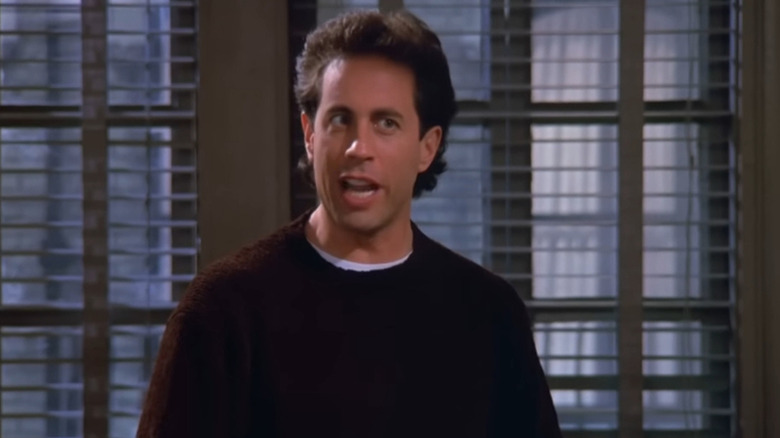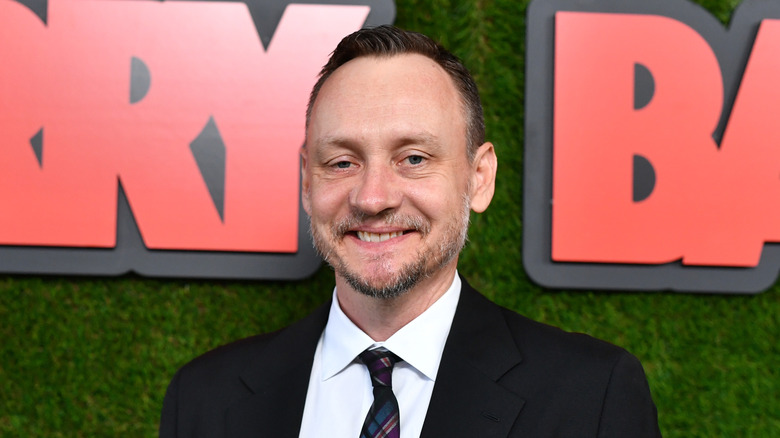Seinfeld Producer Explains Why Season 9 Seemed Like The Place To End The Show
Few sitcoms in history have had the lasting power of "Seinfeld." The show remains in such high demand that, more than three decades after it first aired, Netflix paid half a billion dollars for the rights to stream the exploits of Jerry Seinfeld and his band of Upper West Side misanthropes. And yet it was far from the longest-running sitcom, ending contentiously on its ninth season. Nine seasons of anything made is, of course, a great accomplishment. But "Seinfeld" was such an overwhelming force of nature, so emblematic of its zeitgeist, that it could undoubtedly have continued into a tenth and beyond.
According to "Seinfeld" producer Alec Berg, who spoke with Variety in 2018 about the show's ending, there's a good reason the iconic "show about nothing" came to a close before hitting the double digits, and it boils down to Jerry Seinfeld's artistic instincts and integrity. "Jerry's always had such an amazing head on his shoulders," Berg said, "and he's never been in awe of any of it. He handles it all with dignity, and I think he just felt like this felt right to him."
Jerry Seinfeld didn't want to put money over artistic integrity
Writer and producer Alec Berg was a core fixture of "Seinfeld" behind the scenes in the later seasons, kickstarting a long career of celebrated comedy. He's since worked with "Seinfeld" creator Larry David on "Curb Your Enthusiasm," combined with Mike Judge for the riotous tech industry sendup "Silicon Valley," and co-created the morbidly hilarious "Barry" with Bill Hader. There are few people better suited to comment on the legacy of "Seinfeld," and Berg seems to think the sitcom ended at the right time.
Continuing his remarks, Berg said that NBC "had offered to give [Jerry Seinfeld] seven gazillion dollars and his own planet if he wanted to do another season." But Seinfeld saw no reason other than the promise of a paycheck to continue with the series, and a bigger bank balance wasn't what the comedian was after. "He thought about it and said, 'The only reason to do another year would be money, and that would be a shame,'" Berg said, paraphrasing Seinfeld.

